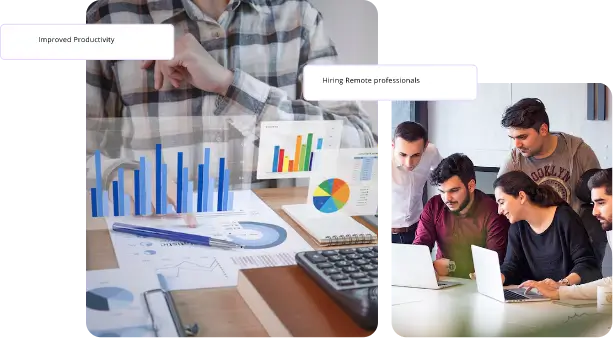Office politics is an aspect of almost every workplace. Whether it is more indirect and subtle or overt and cut-throat, office politics impacts how employee relationships unfold, decisions are made, and career paths develop. It can be cumulative and therefore useful, where employees are given visibility and opportunity, or damaging, in the form of competition, conflicts, breeding favouritism, and toxic cultures. Employees and leaders need to adopt positive behaviours. There is a way to reduce negative impacts, build trust, and establish healthy work cultures in today’s digitally connected world by raising our self-awareness, promoting self-disclosure, and practising professionalism.
In 2025, with the emergence of hybrid work, remote collaboration, and global teams, office politics is even more obvious. According to a survey of nearly 800 workers across the United States, nearly half reported that office politics remained as toxic as before the pandemic, while about 25% thought they would worsen. Another study found that 45% of workers do not go into the office because of office politics and opinions of other workers. Gossip, flattering, undermining, and taking credit were the most common types of behaviours mentioned.
What is Office Politics?
Office politics, or workplace or organisational politics, is when individuals influence relationships and power at work to achieve personal or professional goals. Office politics can be positive, like developing visibility and collaboration, or it can be negative, like favouritism, gossip, and conflicts.
Office politics do exist because people occupy work roles where they often have competing interests, values, and expectations. Office politics can sometimes be positive, fostering relationships and establishing the ability to influence decisions that are beneficial to the entire team or organisation. Office politics can often also be negative, using favouritism or gossip, or being motivated by hidden agendas that lead to discord and conflict.
Office politics is how employees leverage power, influence, and relationships at work. While it can’t avoid office politics altogether, if you learn to manage office politics effectively, it will help minimise negative consequences and hopefully lead to growth and potential collaboration.
What are the Common Types of Office Politics?
There are many facets of office politics at work; some are constructive, while others may create friction and issues to deal with. Every workplace experience different kinds of politics. Understanding these types makes it easier to recognise and handle them.
1. Gossip
This occurs when members of a workplace share rumours or partial truths about other workplace members. Gossip will create a workplace that is toxic, where there is breached trust, misunderstanding, and members feel unsafe, isolated, or judged. It decreases team engagement and productivity.
2. Favouritism
When managers and leaders give promotions, recognition, or better projects to some employees instead of others, it creates resentment from other employees. Favouritism can hurt the harmony of work, and employees might not feel appreciated for their hard work, regardless.
3. Power Struggles
There are some workplaces that induce competition among coworkers for control, authority, or recognition. These conflicts can inhibit decision-making and often lead to discomfort in team dynamics. Rather than collaborating, people concentrate on competing, which directly inhibits collaboration and performance.
4. Backstabbing
When someone takes covert action to undermine a coworker for personal advantage, even going so far as to blame them for mistakes, or even make derogatory comments in private about them, backstabbing occurs. It is damaging to trust, creates fear, and creates rifts in relationships already formed between employees.
5. Credit-Taking
Some employees take credit for tasks or projects they didn't actually do. This is frustrating for the actual workers, discourages creativity, and decreases motivation because real efforts are overlooked.
6. Information Hoarding
When employees conceal or monopolise important information to leverage it for self-interest, they are inhibiting others from doing their job in an effective way. This impacts how quickly and effectively you can make progress, impacts teamwork, and makes working in cooperation within the organisation more difficult.
What are Some Examples of Office Politics?
Office politics can look different in every workplace. Here are some simple examples to understand it better:

1. Spreading Rumours
Employees may sometimes spread rumours about each other or make up things about one another that will hurt someone’s reputation or standing in a group. Rumours will poison any culture or trust and also distract people from their jobs.
2. Forming Cliques
People sometimes form small groups of friends in the workplace. These cliques can exclude others from decisions or social activities, which can negatively affect trust, teamwork, and cause exclusion among employees.
3. Taking Undue Credit
Certain individuals take credit for projects they did not fully contribute to. This frustrates and demotivates the real contributors and makes employees feel like their participation and efforts do not mean anything.
4. Manipulating Decisions
There's one employee who manipulates managers to benefit themselves. Examples include pushing their agenda or directing projects for their own personal gain. This diminishes the equity, fairness, and unity of a company and potentially puts the whole organisation in jeopardy.
5. Blame Shifting
Instead of accepting accountability, some employees' first instinct is to blame someone else when things go wrong. This erodes trust, leads to more conflict, and ultimately results in less accountability for the team.
How to Deal with Office Politics?
Office politics cannot always be avoided, but they can be effectively managed. Employees who learn to manage and benefit from office politics enhance their professional images and develop their careers while creating stronger workplace relationships. Here are a few strategies that organisations and employees can use to manage and adapt to office politics.

1. Stay Professional
Keep professional while focusing on your work and controlling your emotions. You can still communicate with others nicely, even if they are negative. Take the high road and refuse to engage in the drama. This step builds respect and a strong reputation.
2. Build Strong Relationships
Cultivating positive relationships with coworkers, regardless of level, is essential. When people trust you and respect you, it makes it harder for politics to damage your name. Networking with people also provides you with people to lean on when the times get tough.
3. Communicate Clearly
Be clear and transparent in your discussions. Clear communication is essential for avoiding miscommunication and potentially being misquoted by someone else. Openness and transparency demonstrate integrity.
4. Avoid Gossip
Don't participate in or listen to rumours. If you engage in gossip, it will typically distort your reputation and likely lead to someone missing out on their goal while they are distracted by gossip and rumours.
5. Focus on Performance
Deliver consistently. Hold yourself accountable to achieve high results. When you deliver results consistently, the impact of office politics on your career growth and credibility is minimised.
6. Be Aware, Not Reactionary
Be present and understand what is going on around you, but do not act out of anger or fear. Be aware so you can make informed decisions and not become a pawn in someone else's game because of their selfish desire for power and influence.
7. Seek Support
If you feel frustrated by the situation, talk with a trusted mentor or manager. Their insights can provide you with perspective and help you create a plan to manage the situation with confidence and calm.

